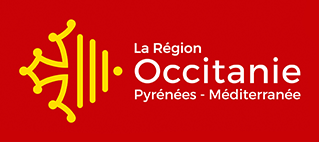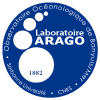 Observatoire Océanologique de Banyuls-sur-Mer
Observatoire Océanologique de Banyuls-sur-Mer
Federating Themes
The scientific fields of the 4 OOB research units are combined within 3 federating themes, through original approaches that merge our different areas.
Biotic Marine Interactions
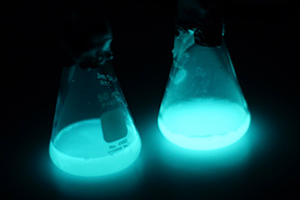 In-vitro bioluminescence of Vibrios. These bacteria live in symbiotic association with Sepiolas in the sea, and are the historical model for the research on quorum sensing, a cell-to-cell communication mechanism.
In-vitro bioluminescence of Vibrios. These bacteria live in symbiotic association with Sepiolas in the sea, and are the historical model for the research on quorum sensing, a cell-to-cell communication mechanism.Copyright : Raphaël LAMI (OOB/SU)
All living species are connected to each other through biotic interactions, including intimate associations known as symbioses involving different species within bacteria, eukaryotes and viruses. Symbiotic associations play critical roles in the distribution patterns and the coexistence of species in natural marine environments, their resilience to natural or anthropogenic disturbances, and the ecological functions they perform in ecosystems. Symbioses represent very good models in evolutionary biology, because symbionts display specific adaptations to their hosts, their environment that itself is evolving.
The study of biological interactions is a dynamic research field that is performed at different levels: molecular, organismal and ecosystemic.
Rhythms and cycles in Mediterranean marine environments
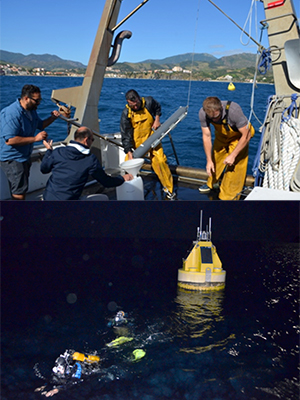 Day and night sampling to characterize circadian dynamics.
Day and night sampling to characterize circadian dynamics.
The life cycle of living organisms is closely related to the natural variability of their environmental conditions. This variability may be random, induced by sudden changes in the environment (extreme events), but is mainly expressed periodically (day/night, tidal, seasonal cycles). Organisms respond with rhythmic biological activities that enable them to anticipate fluctuating environmental conditions and produce an appropriate response at the right time.
This federating theme aims to characterize environmental rhythmic fluctuations in the marine environment and decipher how organisms perceive them, inducing the synchronization of their biological activities.
Read more: Rhythms and cycles in Mediterranean marine environments
Marine toxicology and ecotoxicology
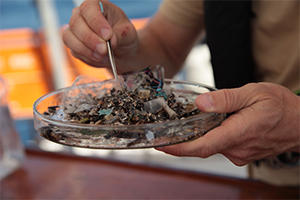
Civil society is concerned about the impact of pollutants on organisms (toxicology) and on the functioning of ecosystems (ecotoxicology). Marine environments are considered the final receptacle for a wide variety of pollutants from the continent (plastics, pesticides, hydrocarbons, heavy metals, pharmaceuticals), while they provide ecosystem services essential to life on earth. At the crossroads of complementary disciplines and benefiting from exceptional infrastructures, the OOB offers a unique framework for carrying out fundamental and applied research which aims to evaluate, predict and reduce the impact of humans on ecosystems sailors.










